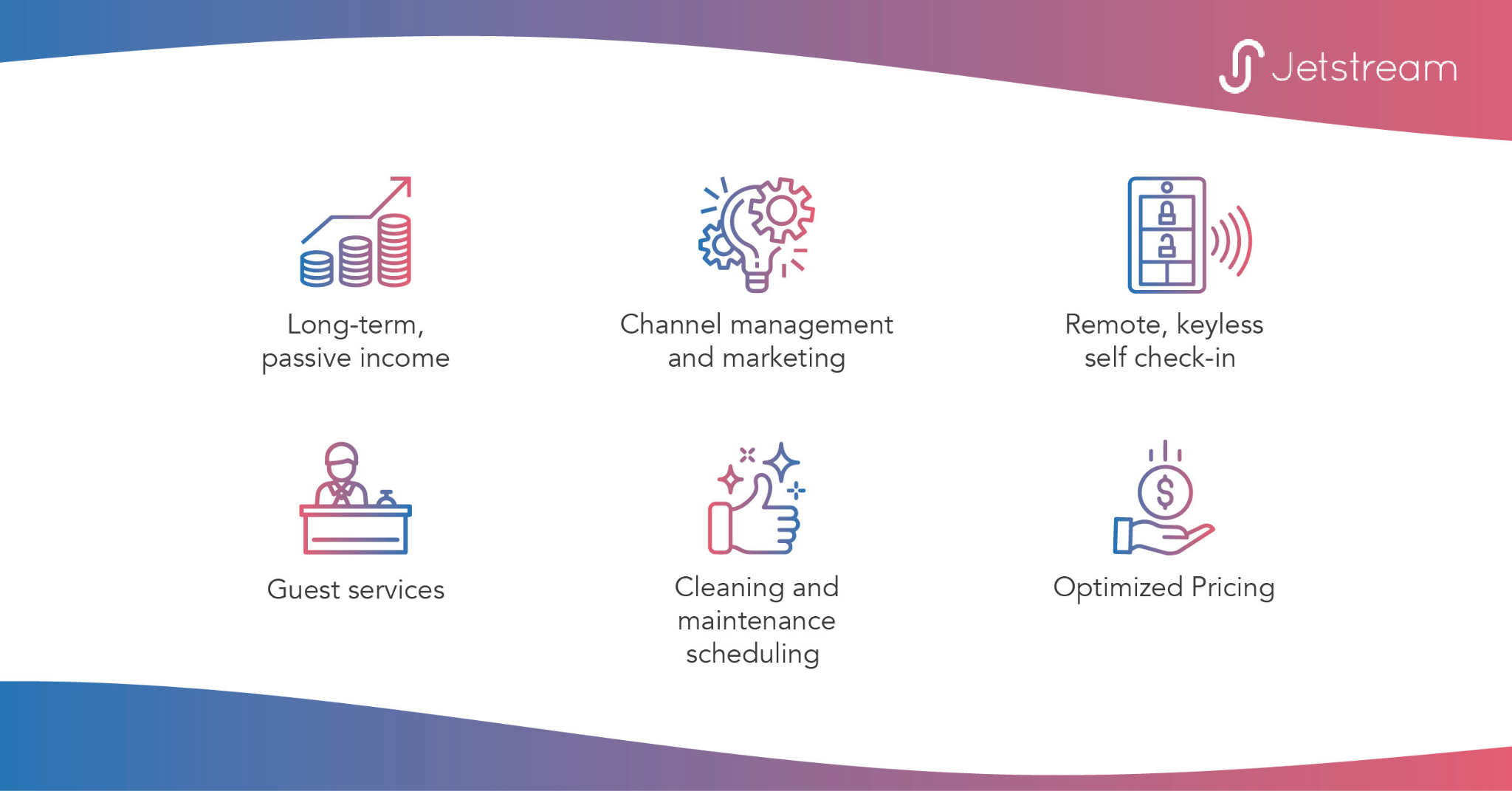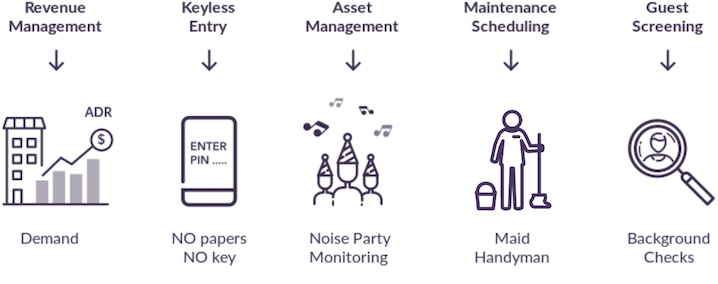8 min read
8 Side Jobs for Realtors to Earn Stable Income Between Sales
Ben Day
Feb 13, 2023 3:38:49 PM

All realtors know the market comes with its uncertainties: you could have a fantastic streak of major deals in one month, and a dry spell for the rest of the year.
It can be hard for even the best real estate agents to consistently build relationships, drive revenue for clients, and advance their portfolio—especially between sales or off-season. And when your entire income relies on your commission check, sudden market fluctuations and slowdowns can be scary.
One solution is to have a good side job that brings you a steady income. For real estate agents, a second job means a steady side-stream of income and reliable cash flow instead of the feast-or-famine income dynamic of a realtor’s job.
But what exactly can you do to earn more consistently and how can you do it without taking time away from your brokerage?
We’ve written a guide to the eight part-time jobs for realtors to earn a stable income, so you can leverage the resources and relationships you already have to stave off the ‘famine’ part of the cycle and diversify your revenue stream.
Why every real estate agent needs a side hustle
Part of being a realtor is preparing for bad markets and searching for ways of securing your financial freedom. A realtor side job can help generate more stable, long-term income that also helps support your brand as a real estate agent.
That’s why more and more realtors are diversifying their income sources and looking for side gigs that lessen their dependence on their commission-based pay and leverage their existing skills and relationships—with the option of staying fully devoted to their brokerage.
Other benefits include:
- Increased financial flexibility
- Ability to invest in and market yourself
- Ability to learn new skills or improve existing ones
How can real estate agents make extra money?
You’ll find a lot of advice on how to earn supplemental income as an active real estate agent—but adding more work to your plate and jumping into real estate investment isn’t quite the solution you need.
Forget real estate investment if you want to earn a passive income from real estate.
There’s one way you can make extra money without the additional work. Below, we explore how vacation rental property management can create new revenue streams while letting you stay committed to prospective deals, so you can generate a steady, passive income that’s truly passive.
Let’s take a look at some second jobs for real estate agents.
Outsourced property management
Until recently, the short-term rental (STR) industry required massive amounts of time and energy to communicate with guests, schedule maintenance and housekeeping, continually meet guests’ needs, and drive revenue for clients.
But now, you can outsource and automate almost everything you need to build your brand without doing more work. With outsourced vacation rental management, you can work with past clients and use your network to manage vacation rentals and get passive income without risks or upfront costs.
The best part is you can quickly scale your business and grow your property management portfolio based on your capacity and revenue goals.
If you’re considering this venture, Jetstream makes it easy to market and manage STR listings. Jetstream’s powerful technology and service teams handle everything: from workflow automation to marketing and optimizing your property listing and guest communications.
 Jetstream frees up your time while unlocking a new source of passive income.
Jetstream frees up your time while unlocking a new source of passive income.
How a real estate professional became an STR property manager by entering the Jetstream
Jonas Gordon is a prime example of how a realtor became a successful short-term rental property manager without doing more work.
Jonas was interested in maximizing his earning potential while operating his real estate business from the resort town of Canmore. He took interest in the STR market, knowing that by understanding it he’d bring more value to his clients—who wanted the ability to use their properties themselves and also use them to generate income.
But like most real estate agents looking to earn a vacation rental passive income, Jonas was put off by how much work went into property management. He feared being chained to his desk due to late check-ins or guest issues and didn’t want to divert attention from his brand.
Then Jonas met Jetstream. He quickly realized Jetstream’s advanced technology would enable him to continue to build client relationships and utilize his unique skill set—while Jetstream did the rest. Jetstream took care of the day-to-day operations: like identity screening, guest check-in, 24/7 customer care team to help with guests, secure remote access; and bigger-picture tasks: like distribution, channel and listing management, and marketing.

Jetstream helps you get the most out of your STR business with these features.
Jetstream’s shared success model also enabled Jonas to scale his business at his own pace, without upfront costs. Jonas’s first session with Jetstream yielded amazing results including: going from zero to six figures in six months, constant bookings, and incredible guest satisfaction rates.
Here’s what Jonas has to say about partnering with Jetstream:
“We’re at the point now where it’s all systemized and structured. That gives me the confidence to keep growing the business aggressively. Our housekeeping and operations are in place, and I know we can scale and still provide terrific performance for our owners.”
8 side business ideas for real estate agents
Below we list eight side business ideas (and their pros and cons) that complement the skills and networks real estate professionals already have—so you can work toward building up your business and brand without sacrificing your clients, time, or talent.
Home repair
Maintenance services and home repair is a stable side gig that gives you a predictable revenue stream and total control over your clients and schedule. If you like working with your hands, know your way around a toolbox, and have contacts in construction, this could be the gig for you.
Since this business is all about referrals, you’ll also already have your foot in the door by leveraging your relationships with other brokers and property owners in your community. But it’s not for everyone and can be labor-intensive, so make sure you’re equipped with the technical knowledge and skills to proceed.

Home repair.
Pros:
- You’re your own boss
- Simple, repeatable business model
- Strong demand
- Higher likelihood of referral
- Control of workload
Cons:
- Lack of benefits
- Work can be inconsistent
- Self-employment taxes
- Work isn’t always glamorous
- Equipment breakdowns and cost
- More challenging to earn passive extra income
Cleaning services
Venturing into cleaning services is a great way of utilizing real estate contacts who are constantly in need of clean properties. Especially when the global household cleaning market is projected to reach $40 billion by 2025.
It’s an opportunity to maximize profit by offering niche services like carpet and couch cleaning, pre-move deep cleaning, or foreclosure cleanouts. You can also set yourself apart by offering eco-friendly cleaning products and processes, and appeal to a wider range of clients and guest needs.
But it can be hard to cut costs and stay competitive, so make sure you do market research before pricing your services to ensure you’re within an economical range while still turning a profit.

House cleaning services.
Pros:
- Regular income and unlimited income potential
- Easy to roll out into your real estate offering
- Low start-up cost
- Quick to gain profit
Cons:
- Can be stressful
- Physically taxing
- Highly competitive
- Equipment and product cost
3. Outsourced vacation rental management
As mentioned above, outsourced vacation rental management is a simple and scalable way to generate passive income, without any upfront costs. With the right tools, you can easily manage properties on the owner’s behalf while maximizing your profits—even working part-time.
Pros:
- Passive income
- Scalable business
- Flexible schedule
- Easily rolls into real estate brand offering
- Brings added value to homeowners
- Build strong relationships with clients and partners
Cons:
- Requires marketing and guest communication tools
4. Landscaping
If you love spending time outdoors, working as a landscaper is a good way to unleash your creativity and delight clients with artfully manicured gardens and lawns. Landscaping gives you a steady influx of clients, a flexible schedule, and a relatively easy business model to follow and replicate.
Although it’s a competitive industry and breaking into it might take major marketing efforts, you can leverage your network and the power of word-of-mouth marketing to start. To maximize revenue and set yourself apart from the competition, consider offering extras like disposal or yard waste services, lawn aeration, at-home car cleaning, or bug and disease treatment.

Garden landscaping.
Pros:
- Customized client list
- Steady demand
- Flexible schedule
- Simple, repeatable business model
- Creative
- Nature-based
Cons:
- Labor costs and shortage
- Physically tasking
- Equipment breakdowns and costs
- Can be seasonal work
- Highly competitive
5. Home staging
If you have an eye for detail and interior design, you might want to consider staging homes. Home staging is a great way to work your real estate know-how into your next realtor side job—by using your existing sales knowledge and experience to curate the perfect home environment.
To be successful in this business, you’ll need to have stellar communication skills that enable you to understand and deliver the vision and goals of your clients, while strategically accentuating the property’s main selling points.

Home staging example.
Pros:
- No certification required
- Low upfront costs
- High-profit margin potential
- High demand
Cons:
- Increased investment over time
- Demand relies on the real estate market
- High-pressure work
- Inconsistent hours
6. Bird-dogging
A bird-dog is a person who finds real estate investors deals on distressed or undervalued properties (or highly motivated sellers). They get a fee or percentage for every successful lead they find that turns into a purchase. Bird-dogging can be a lucrative side venture that leverages your existing real estate Rolodex and market knowledge—while expanding your network.
To be a successful bird-dog, you’ll need an impeccable eye for detail, the ability to act fast, and be responsive to market changes and listings. And although it’s a time-consuming gig, done right it can lead to major earnings.
Pros:
- Low startup costs
- Control of workload
- Gain experience and exposure in the market
- High customer retention rates
- High hourly pay rates
Cons:
- Work can be inconsistent
- Lack of benefits
- Time commitment
- Requires travel
- More challenging to earn passive income
7. Real estate blogger
Blogging about real estate can be an excellent way of expanding your network and connecting with potential clients online and on social media. It gives you the opportunity to make a strong first impression on your clients by solidifying you and your brand as a key voice in the industry—and giving buyers and sellers useful, insightful information.
But, like podcasting, real estate blogging takes tons of work for a potentially minimal payout. To maximize your earning potential be sure to sell subscriptions for exclusive content on your website, email, or blog, include affiliate links, endorse sponsored content or products, and include ads on your website.
You’ll also need great writing (and proofreading) skills, the ability to synthesize market and industry trends into easy-to-understand concepts, and a voice that resonates with your readers.
Pros:
- Establishes credibility
- Helps lead generation
- Increased online presence and findability
- Cost-effective
- Work from home
Cons:
- Time-consuming
- Requires writing and editing skills
- Website creation costs
- Highly competitive
- Takes time to see results
8. Real estate photographer
Real estate or Airbnb photography is a popular venture that’s beneficial to both the seller and real estate broker. To start, you’ll need a superb portfolio that demonstrates an understanding of the specific nuances of selling real estate and showcases the strengths of the property.
Real estate photography is a good way to network with key industry professionals while giving you sales insight and access to new listings and brokerage opportunities. But you’ll need to invest in a professional camera, tripod, lighting stands, and remote triggers to name a few, to deliver the highest quality portraits and get more business.

Real estate photography example.
Pros:
- You’re your own boss
- Simple, repeatable business model
- Flexible schedule
- Ability to establish yourself as an expert
- Quick to gain profit
- Get new perspectives on key selling points
Cons:
- Requires travel
- Niche market
- Time commitment
- Equipment costs
- Technical issues
- Impatient clients
The best side job for real estate agents
The real estate industry isn’t for everyone—and spits out more agents than it can chew. Especially since 87% of real estate agents quit or fail within the first five years. But creating a source of stable extra income with a rewarding part time realtor job can help keep you stress-free between commissions and protect you from precarious market fluctuations.
Opting for outsourced vacation rental management is arguably the most profitable and passive side job option out there. And with a service like Jetstream to do all the heavy lifting, you’ll be sailing through the off-season.
Frequently asked questions about side jobs for real estate agents
What is the most profitable business in real estate?
The most profitable business in real estate, depending on their credentials and experience, is done by commercial real estate agents—making an average of $91,208 per year.
How much do real estate agents get paid?
Depending on their experience level, market, and listing locations, real estate agents get paid anywhere from $15,000 to multiple millions of dollars per year.
How much do realtors make starting out?
A first-year real estate agent that’s starting out can make anything from $15,000-53,000 depending on various factors like listing location, industry contacts, and determination. However, according to recent studies, the average real estate income doubles after the first year.
What type of business should I open for real estate?
The type of business you should open for real estate largely depends on your interests, financial goals, and time investment. However, a good option is to start an outsourced vacation rental management company that can maximize your income and scale with you, without any upfront costs.

